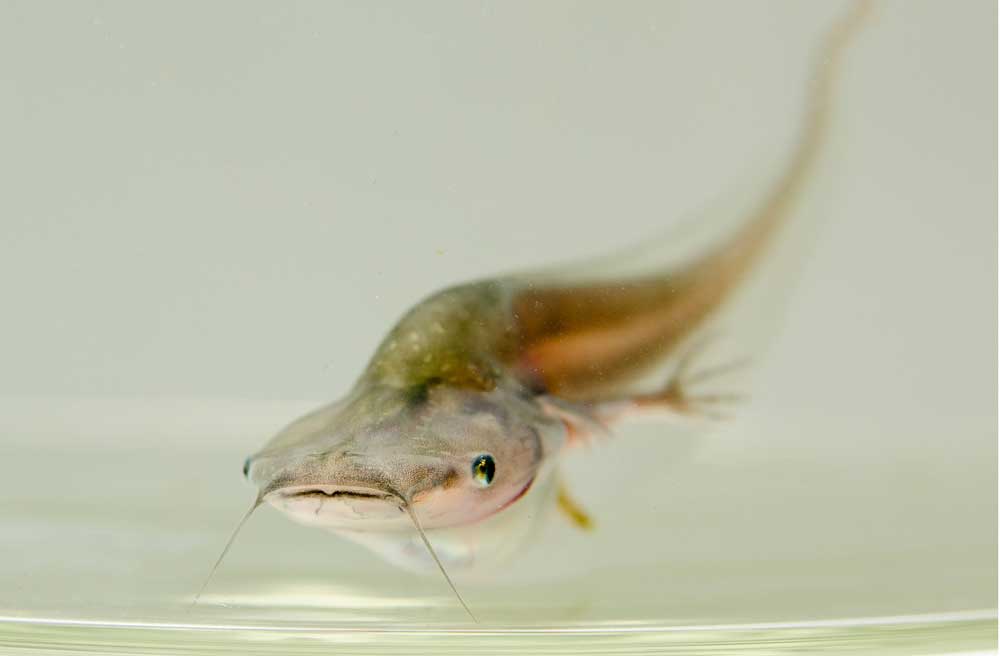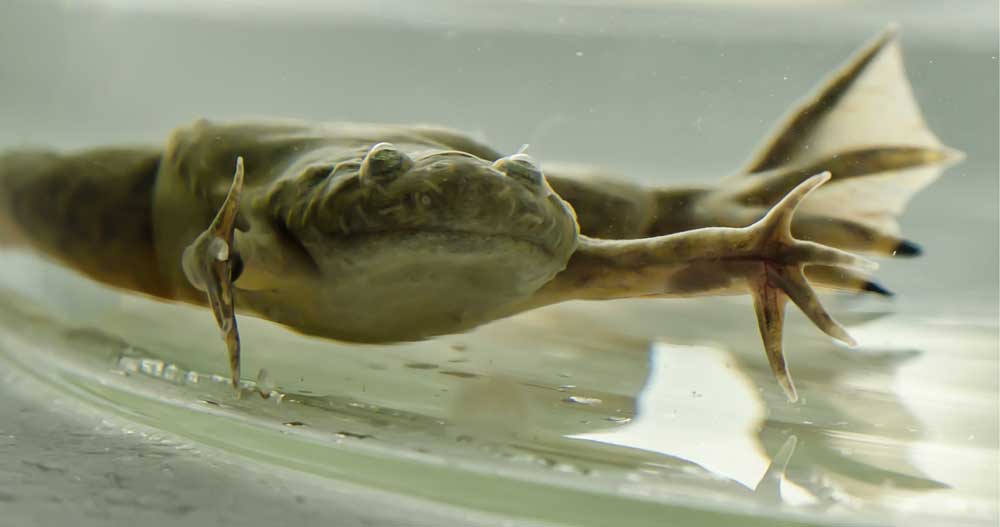African clawed frogs are quite possibly the most studied amphibian.
Researchers have found that African clawed frogs (Xenopus spp.) have interesting diversity in the genetic processes that help to determine if an African clawed from is male or female. The researchers conducted a genomic analysis of 11 African clawed frog species and found 8 different sex chromosomes. These sex chromosomes, according to the researchers, could retain unique and evolved genes that determine male or female sex determination.
Some of the frogs in the study include Xenopus calcaratus, X tropicalis X. epitropicalis, X. fraseri, X. amieti, X. laevis, and X. muelleri
“In these frogs, we’ve discovered extraordinary variation even among closely related species, which allows us to explore how important things like sex determination evolve rapidly,” Ben Evans, a professor in the Department of Biology at McMaster University in Hamilton, ON said in press release put out by the university. Evans, lead author of the study detailing the sex findings, worked with colleagues form France, the Czech Republic, France, the United States and South Africa on the research.

Pictures of type specimens of resurrected and new species including X. calcaratus ZMB 8255A (lectotype), X. mellotropicalis NCSM 76797 (holotype), X. allofraseri CAS 207765 (holotype), X. eysoole MCZ A-138016 (holotype), X. kobeli MCZ A-148037 (holotype), X. parafraseri MCZ A-148034 (holotype), and X. fischbergi CAS 255060 (holotype). Scale bar is 5 mm. This is a truncated version of Fig 6 and is meant for preview purposes. Please refer to S3–S5 Figs in the Supporting information for the full size version. https://doi.org/10.1371/journal.pone.0142823.g006
Prior to this study, there were only three known sex chromosomes in the frogs of the Xenopus genus. The genes that determined the sex of a specimen was previously thought to come from regions of the genome that have a low rate of recombination, or when genetic matierla is exchanged between parents that “creates new mixtures of traits in their offspring.”

African clawed frog tadpole. Photo by Adam Bewick
The study determined that the newly evolved genes were almost always located in areas where genetic recombination is high. This, the researchers say, raises even more questions, such as how and why traits, such as sexual differentiation could evolve so quickly and how new genes and genetic function occurs.
Six New African Clawed Frog Species Discovered
African Clawed Frogs Regenerate Hind Limbs With Drug Therapies
“If you conducted these same tests within some even older groups such as most mammals or all birds, you would find that their sex chromosomes are all the same,” Evans said . “But this group of frogs — in sharp contrast — has incredible variation.”
Evans has studied African clawed frogs for more than 20 years and also led a team that discovered six new African clawed frog species. These discoveries helped to provide the foundational information for the sex determination study.
The complete paper, “Genetics, Morphology, Advertisement Calls, and Historical Records Distinguish Six New Polyploid Species of African Clawed Frog (Xenopus, Pipidae) from West and Central Africa” can be read on the PLOS One website.



